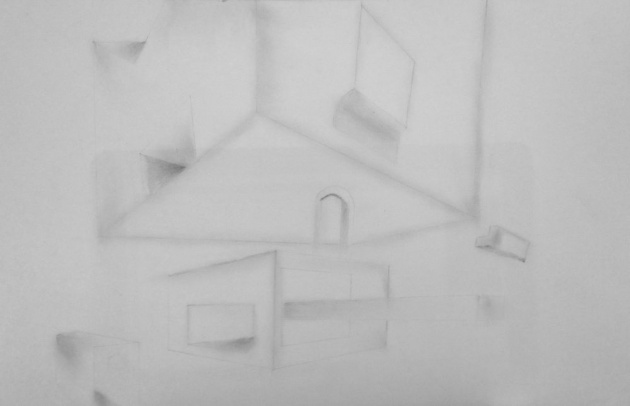
Image Credit: Paper Masters
Have you ever read 1984? Fahrenheit 451? Brave New World?
All of these books are dystopias, pieces of literature that revolve around some variant of human civilization gone wrong. Literally meaning "the bad place", dystopias tend to share common themes such as a totalitarian government, eradication or concealment of disability, prohibition or distortion of normal relationships, the use of advanced technology used to monitor and/or control people, and a lack of art and/or literature. Freedom of speech is almost always restricted in a dystopia--unless its citizens have become so stupid that they have nothing to say. Though intelligence and information control is a feature of many dystopias, its execution is not always straightforward.
In this dystopia, intelligence is not punished. In fact, it is encouraged in the form of rigorous testing from a young age. These tests are supposed to be snapshots of citizens' potential for success according to an arbitrary set of standards. From that day on, officials pile on homework hoping to prepare their charges for the next test. Not only that, members pressure themselves to manage this, extracurriculars such as sports and arts, service hours, and even a part-time job. It is no secret that this lifestyle takes a toll on the citizens of these societies, but these effects often go dismissed by officials, both at local and global levels.
Though the availability of information is not restricted, this dystopia is selective about the types of information it promotes. It tells its citizens what they need to learn and bombards them with so much information so quickly that it is impossible to absorb anything properly. They must learn a certain amount in a certain timeframe or risk "failing", which this dystopia touts as the utmost humiliation. Failure means having no future, no purpose, being nothing. Failure is something to be feared like a mountain lion lurking in the shadows.
It's no wonder why dystopias are popular among high school students nowadays. With all the tests and tryouts, there is no room to slow down and question. It's doing, doing, doing day in and day out with almost no respite. The curiosity instinct, if it cannot be eradicated, is at least corrupted and made into something unpleasant. Unlike most other dystopias, high schools do not ban art. Instead, they distort one's perception of art and turn it into a preoccupation with perfection and technical skill. Because of this, the inspiring effects of art are dulled and, thus, art poses no threat to this dystopia.

Image Credit: Myself
In addition to needing no art ban, there is no need for a high school to interfere directly with students' relationships. They do it themselves. Every student finds some achievement to tout in the hopes of finding social acceptance and because they run out of things to talk about, they find more achievements to alert others of. For the athletes, it is a winning move that saved the game or a trademark skill; for the academics, it is GPA or amount of AP classes. Basing alliances around these niches rarely forges true friendships. Those are products of genuine fondness regardless of circumstance, something long-forgotten in the dystopia that is a traditional high school.

Image Credit: Robert Wechsler
In most schools, everyone is equally devalued, including students with disabilities. Some have accommodations that allow the dystopian government to mask the horrors of what its citizens endure. In understanding that perception of disability is the most effective indicator of a society's value of citizens as a whole, some schools practically venerate disabled students in order to conceal the overall ill effects of their methods. In worse situations, such students are either concealed from the public eye or denied enrollment altogether. Alternatively, students with learning or social disabilities feel inferior or alienated due to their lack of apparent successes within the system. When this is the case, the student is either (1) left to fail because the impairment is "their problem" or (2) supported almost to the point where they cannot fail in order to achieve the desired level of success.
Even worse, some teachers have the nerve to warn students of the potential that a dystopian world could exist when they're living in one. This tactic is essentially the same as the "war" in 1984, but, since the "enemy" is abstract, the idea that this war is one worth fighting is not so easily refuted. There is no war with Eurasia or East Asia. The war is against a hypothetical vision of the future. In a world where authors warned of about book-burning, we live in one where books are readily available but we are so concerned with having the "correct" interpretation of one that we are afraid to draw anything from them at all.



